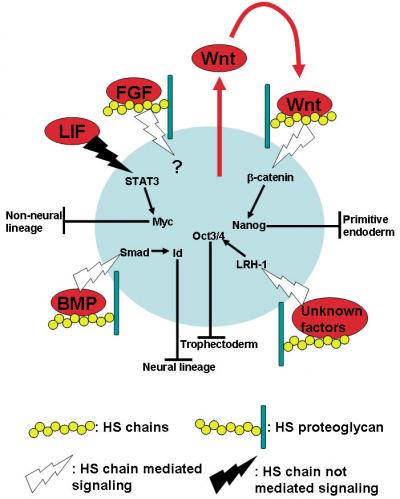Heparan sulfate, a carbohydrate molecule that coats certain proteins on the cell surface, is critical for the proper proliferation and potency of embryonic stem cells, researchers report.
Stem cells’ tremendous therapeutic potential arises from their ability to continually self-renew and turn into any adult cell type. Researchers have long been trying to uncover the basis of these abilities, but while several proteins and growth factors are known to play a role both inside and outside the cell, the molecular mechanisms remain largely unknown.
Many of the stem-cell associated can attach to heparan sulfate molecules, so Shoko Nishihara and colleagues examined what would happen to mouse stem cells in cell culture if heparan sulfate production was reduced or blocked. They discovered that three of the major external factors promoting stem cell renewal (proteins called Wnt, FGF, and BMP) could not induce the proper signals inside the cell without HS.

As a result, HS deficient cells grew more slowly, and also spontaneously differentiated into other cells more often, at rates that correlated with the level of inhibition. Nishihara and colleagues propose that heparan sulfate might be the cell-surface component that mediates the external and internal signals promoting stem cell renewal, and could be an important target for stem cell engineering.